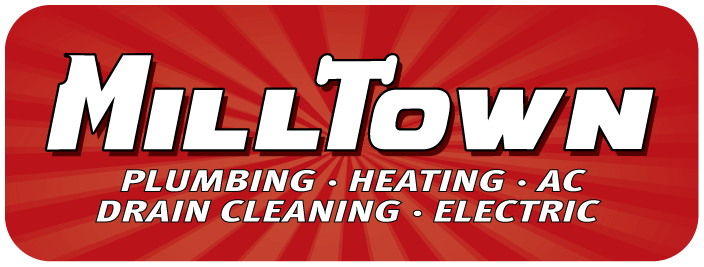Preventing Backflow This Winter
- Plumbing

What is backflow and how can you prevent it this winter? There are enough home maintenance problems when winter hits. Where to shovel the several feet of snow that have accumulated on your driveway, how to avoid ice dams and roof leaks, preventing your plumbing from freezing and bursting; it’s enough to make any homeowner’s head spin. Preventing backflow, unfortunately, is another issue to tack onto your list, but it’s one problem that should never be overlooked.
What You Need to Know About Backflow
Backflow happens when unwanted water flows in the reverse direction, which can be a serious health risk when your drinking water is cross-contaminated with foul water. Your plumbing is complicated, but there are several ways to keep the worst of plumbing problems away. The first step, however, is to know when there is a problem. If you’re concerned about backflow, here are a few warning signs to look out for.
- Backflow preventer breaks. All plumbing systems now come with a backflow preventer device, which when functioning normally, prevents backflow from happening. When a backflow preventer can’t do its job, it’s usually caused by a poor installation, leak, or malfunction. If you suspect that your water is contaminated, contact a plumber immediately.
- Problems with water pressure. Your plumbing works on a very sensitive balance of water pressure. If the water pressure becomes imbalanced from either the incoming supply side or the outgoing wastewater side, this can cause backflow. A change in water pressure, however, can be caused by several things such as a broken water main, an opened fire hydrant, or worse, an overloaded sewer.
- A blockage. A sewer blockage can be caused by a multitude of things: tree root incursion, construction mishaps, deteriorating pipes, etc. The problem with sewer blockages is that it prevents wastewater from flowing in the right direction, which can result in backflow.
Preventing Backflow
Backflow poses some serious health hazards for you and your household, which is why it’s so crucial to treat your plumbing right. Luckily, like most plumbing catastrophes, backflow is preventable. If you suspect you’re experiencing backflow, it’s important to contact a plumber immediately, as your health is at stake. Backflow doesn’t just harm your health, but your home, as all that backed up sewage can result in expensive water damages. Here’s how you can go about preventing backflow.
- Install a backflow preventer device if you don’t have one. Chances are that your plumbing already has a backflow preventer device. If your home is old and your plumbing is outdated, however, you might not have a backflow preventer device installed. If you’re unsure, a plumber should be able to determine that for you. A backflow preventer device is the easiest way to prevent backflow, as it actively works to keep wastewater out of your drinking water.
- Maintain your backflow preventer. If your plumbing has a backflow preventer, you’ll need to maintain it. A backflow preventer device has internal seals, springs, and moving parts that are all subject to damage over time. To properly maintain your backflow preventer device, it should be tested annually by a licensed plumber or preferably whoever installed it.
- Have your plumbing inspected. Your plumbing is complicated, and it’s usually never easy to find the direct source of a plumbing problem. It’s a good idea to have a licensed plumber thoroughly inspect your plumbing at least once a year, as this can help prevent major plumbing problems such as backflow. A licensed plumber has the right tools and training to not only determine the exact source of the problem, but repair it safely, and ensure your plumbing functions as it should.
- Protect your hose bibs. It’s easy not to think about your outdoor plumbing, but even something as small as a hose bib can be a potential culprit for backflow. Installing a hose bib backflow preventer is an easy way to prevent outdoor contaminants from cross-contaminating your drinking water.
You Shouldn’t Have to Fight With Sewage
Raw sewage is toxic and damaging to your home, especially if left untreated. You and your house shouldn’t have to suffer from backed up sewage, and luckily you don’t have to. Backflow is preventable as long as you take proper care of your plumbing. Proper maintenance, however, requires some professional help. It’s never too late to call a licensed plumber and see about preventing backflow. Don’t wait until it’s too late, protect your health and home today.
Call Milltown to schedule your service appointment today!











